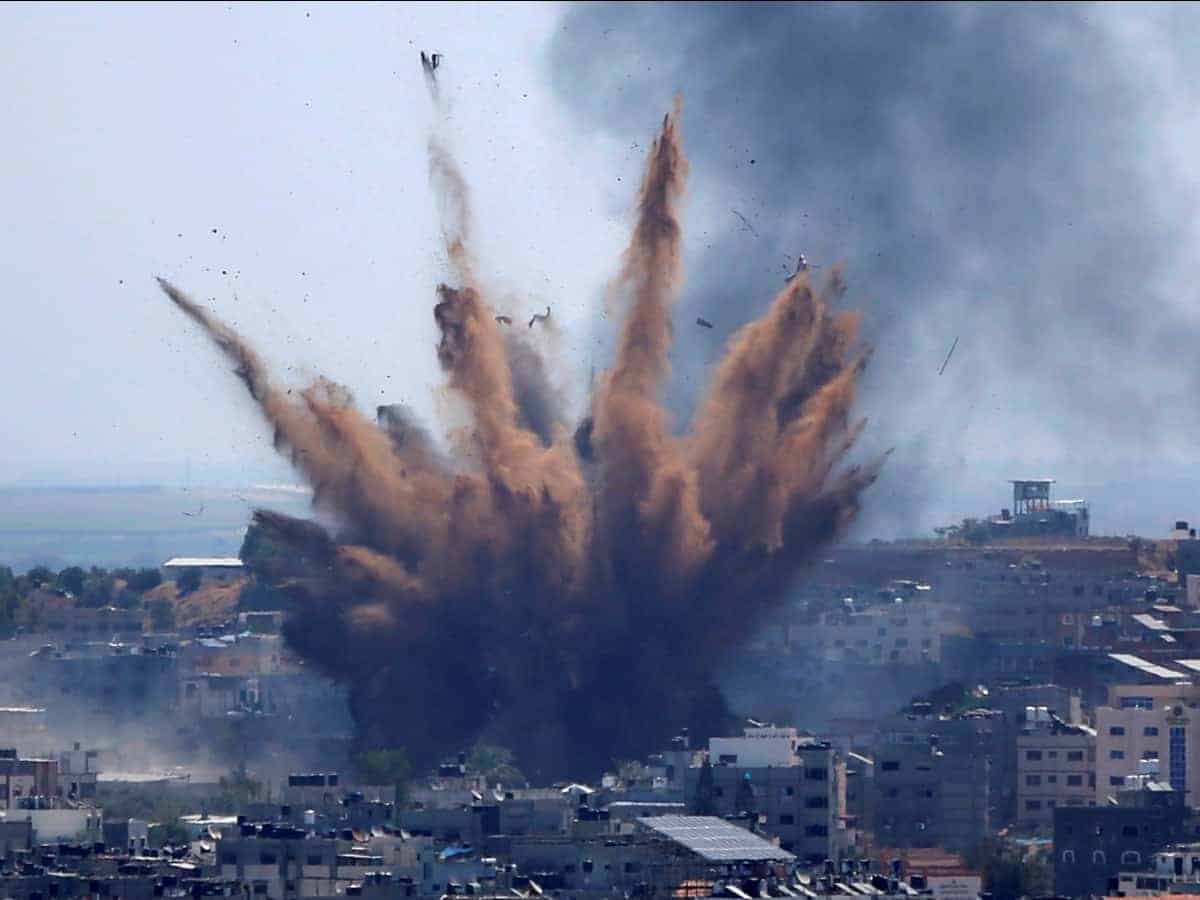Gaza City: Israeli airstrikes on Gaza City flattened three buildings and killed at least 23 people on Sunday, medics said, making it the deadliest single attack since heavy fighting broke out between Israel and the territory’s militant Hamas rulers nearly a week ago.
The Gaza Health Ministry said another 50 people were wounded in the attack. Rescuers were racing to pull survivors and bodies from the rubble.
Earlier, the Israeli military said it destroyed the home of Gaza’s top Hamas leader in a separate strike. It was the third such attack in the last two days.
Israel appears to have stepped up strikes in recent days to inflict as much damage as possible on Hamas as efforts to broker a cease-fire accelerate. A US diplomat is in the region to try to de-escalate tensions, and the UN Security Council is set to meet Sunday.
The military said it struck the homes of Yehiyeh Sinwar, the most senior Hamas leader inside the territory, and his brother Muhammad, another senior Hamas member. On Saturday it destroyed the home of Khalil al-Hayeh, a senior figure in Hamas’ political branch.
Brig. Gen. Hidai Zilberman confirmed the strike on Sinwar’s house in the southern Gaza town of Khan Younis to army radio. The army spokesman said the home of Sinwar’s brother, who is in charge of Hamas’ “logistics and personnel,” was also destroyed.
Hamas’ upper echelon has gone into hiding in Gaza, and it is unlikely any were at home at the time of the strikes. Hamas’ top leader, Ismail Haniyeh, divides his time between Turkey and Qatar, both of which provide political support to the group.
Hamas and the Islamic Jihad militant group have acknowledged 20 fighters killed since the fighting broke out Monday, while Israel says the real number is far higher.
The latest round of fighting the worst since the 2014 Gaza war has killed at least 145 Palestinians in Gaza, including 41 children and 23 women. Eight Israelis have been killed, including a 5-year-old boy and a soldier.
Hamas and other militant groups have fired some 2,900 rockets into Israel since Monday, when tensions over a flashpoint holy site in Jerusalem and the threatened eviction of dozens of Palestinian families boiled over.
About half of those projectiles have fallen short or been intercepted, according to the Israeli military, but rockets have reached major cities and sown widespread panic.
Israel has carried out hundreds of airstrikes across the impoverished and blockaded territory, which is home to more than 2 million Palestinians, and brought down a number of high-rise buildings, including one that housed The Associated Press’ Gaza office.
Early on Sunday, Israeli warplanes struck several buildings and roads in central Gaza City. Photos circulated by residents and journalists showed the airstrikes punched a crater that blocked one of the main roads leading to Shifa hospital, the largest medical center in the strip.
The Health Ministry said the latest airstrikes left at least two dead and 25 wounded, including children and women. There was no immediate comment from the Israeli military.
Since the conflict began, Israel has levelled a number of Gaza City’s tallest office and residential buildings, alleging they house Hamas military infrastructure. On Saturday, it turned to the 12-story al-Jalaa Building, where the offices of the AP, the TV network Al-Jazeera and other media outlets are located, along with several floors of apartments.
The campaign will continue as long as it is required, Israeli Prime Minister Benjamin Netanyahu said in a televised speech Saturday. He alleged that Hamas military intelligence was operating inside the building.
Israel routinely cites a Hamas presence as a reason for targeting certain locations in airstrikes, including residential buildings. The military also has accused the militant group of using journalists as human shields, but provided no evidence to back up the claims.
The AP has operated from the building for 15 years, including through three previous wars between Israel and Hamas. During those conflicts as well as the current one, the news agency’s cameras from its top floor office and roof terrace offered 24-hour live shots as militants’ rockets arched toward Israel and Israeli airstrikes hammered the city and its surroundings.

